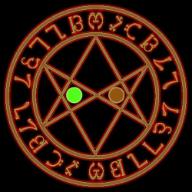✔ 最佳答案
A good example of false science is in the medical industry with medications. Often fool proof cures are found not to work at all. If they do work, they bring on cancer, diabetes and such like ills.
True science is a sure thing, only thing is, man puts his imagination into the findings and man is not a sure thing. Man does not take the ramifications into consideration when he thinks he has found the sure thing.
But they do not!
Science seeks the truth and tests and retests itself!
Try applying that to Chrsitianity! It fails immediately!
The bible is what is called "Faction” A fictional story set in a factual time and place. Thus the time, place and real historical characters are all correct but the fictional characters and stories are not!
There is not one single mention of Jesus in the entire Roman record - that is right - not one! At the same time as he was supposed to have been around there were a number of Jews claiming to be the messiah - all of whom are well recorded!
There is not a single contemporary record from any source and even the bible mentions of him like all other references were not written until many years after his supposed death!
He was supposed to have been a huge problem to the Romans and produced wonderful miracles but still not one contemporary record?
Even the bible mentions of him like all other references were not written until many years after his supposed death!
Pilate is recorded in the Roman record as a somewhat lack luster man but no mention of a Jesus, a trial or crucifixion that would surely have been used to make him look brighter!
At best he was an amalgam of those others but almost certainly never existed!
Not one word of it is contemporary with the period and was not written until several hundred years after the period the story is set in!! How did the apostles write their books more than a hundred years after they would have been dead?
Please realize that those claims for the Old historians are worthless since they were not even born until long after everyone in the stories would have been so long dead!
Josephus AD 37 – AD 100
Tacitus AD 56 – AD 120
Suetonius - 69 – 130 AD
Pliny the Younger, 61 AD – 112 AD
Justin Martyr (Saint Justin) AD103–165 AD
Lucian - AD 120 -180 AD but he was hostile to Christianity and openly mocked it.
Pamphilius AD 240-309 AD
Eusebius AD 263 – 339 AD
Photius AD 877 – 886 AD
Thallus - But there are no actual record of him except a fragment of writing which mentions the sack of Troy [109 BC] Showing that he was clearly not alive in biblical times.
Some even try to use Seneca. 4 BCE – 65 CE but as a Stoic Philosopher he opposed religion yet made not a single mention of a Jesus or Christianity!
Even funnier is trying to claim Celsus AD ? – 177 AD Who said that Jesus was a Jew who’se mother was a poor Jewish girl whose husband, who was a carpenter, drove her away because of her adultery with a Roman soldier named Panthera. She gave birth to an illegitimate child named Jesus. In Egypt, Jesus became learned in sorcery and upon his return presented himself as a god.
At least science provides more evidence than religion does.
Science section is that way ------------------------------>
1) Yes, that's why we have peer review
2) yes, that's why people tend to always be on the lookout for evidence
3) yes, that's why there is peer review and why people look for new evidence
4) that's why there is peer review
so.....what's your point?
I'm going to get to the hidden undertone here, which is that if doctor phil can have a PhD and still be a liar then evolution is wrong and the bible is true
參考: No
Science does not claim to be 100% accurate. It just claims to be able to back up anything it says with facts.
As opposed to the woo-woo of religion. Who know they are wrong, but don't care.
Have you ever heard of "peer-review"? This is the system by which Scientists announce their findings in a published paper, to let other Scientists pore over the same problem, examine the hypothesis the author wished to investigate, check the equipment they specified, and their methodology for sound practice. It's their way of saying "I was curious about This&That, I wanted to see if so-and-so would happen in x-y-z conditions, so I took this Doo-Dah and here's what I did to it, and these are the results. Anyone gotta problem with this?"
Whereas Religion just relies upon EVERY Minister of EVERY different faith around the world, being COMPLETELY CORRECT in their beliefs and mumblings in silent buildings.
No one says that, but science is far, far more accurate than ancient mythology.
You're right about one thing, the climate change denial movement relies on scientists who have been bought by fossil fuel companies. However, outside of that exception, there are few examples of scientists being bought.
Science is self correcting, so when it's wrong it brings itself back into line.
That doesn't help with your unsubstantiated assertions a bit.
They don't.
Where did you get that idea???????
Science is always changing. If you read, just last week, even Stephen Hawking is changing his ideas on Black Holes.
In medicine, what worked decades ago, no longer does.
Someone is always finding something that makes what we once accepted as true, now false. That's the beauty of science... it is ever changing.
Religions? They are rock solid. They never change.
And that is what makes science, science, and religion so silly.
Right. The only reliable truths are those written down by shepherds 2,000 years ago. I mean, if the highly educated intellectuals of our era aren't right 100% of the time, we may as well stick with iron age superstitions until a perfect solutions manifests itself.
Because they feel the need to worship the physical world, since it's the only security they know.
It's not 100% accurate. Hell, science is only ever an approximation based on real phenomenon.
However, contrary to what creationists think, it's never 100% wrong either. It's a self-correcting process, that's designed to find errors, rather than truths.
And no, evolution is a perfectly legitimate study, with applications in medicine.
There's wonderful thing called peer review. If another scientist gets the same results under the same conditions, then the theory is validated.
science is man made. Humans arn't perfect so thus science cannot be perfect.
I've never met or heard of anyone who actually thinks that so it's hard to take your question seriously.
Hypothetically, anyone who thought that science is 100% accurate doesn't understand science very well.
Science is never 100% accurate since all measurements are subject to error. Get five people to measure the length of a house down to the millimetre and you will get three, four or five different answers. If they are careful, none of them will be "wrong" but they should all agree to within about 5 millimetres. You take the average of the five, which is the best estimate you have. All science is the same. Believe it or not, this is one of the first things you learn, the difference between precision and accuracy. In any laboratory worth of the name, all measurements are done in duplicate. If one of the results is way different from the other, the test or measurement is repeated and that is for routine testing only. Where the measurement is for something new and unexpected, it may be done a dozen or a hundred times.
If I claim that there are blue seashells on some particular uninhabited Pacific island as a "scientific" fact I may get away with it for some time until someone else visits the island. However a claim of blue seashells is extraordinary, so scientists involved in that small branch of science would ask for evidence of these shells. I produce shells that have been dyed blue and this may satisfy some of them, but others may still suspect fraud. Since the money needed to visit the island is not currently available, my claim stands as accepted by some and dubious by others until someone else visits the island
Evidence may be overlooked. This is always an issue and scientists go to some lengths to consider it. An analytical chemist runs a "blank" which contains all the laboratory reagents but not the sample, It is treated exactly the same way. The medical researcher testing the effect of a new drug on mice may take 100 mice, give 70 an injection with the drug, 15 an injection of the same materials but without the drug and the other 15 receive no injection at all, but are handled as if they were injected.
In most of the larger branches of science, particularly geology, biology etc problems are usually being worked on by two or more research teams in different parts of the world. I happen to be familiar with research into a particular protein that only appears in the blood of pregnant women for a few weeks in the early stages of a normal pregnancy, If it persists longer than "normal" it may indicate bad problems. Despite the fact that this protein is very obscure, there were two different research teams working on it, one in Australia and another in the USA. At least 10 different scientists were on it. What one scientist or team may overlook, there is some chance that the other will not. In addition, science results that were obtained at any time in the past are subject to revision if they appear relevant to work that is going on now.
The same thing applies to science that has been biased by some organisation, Other people are almost certainly working on it, or some other matter which is related, either directly or co-incidentally. For example, dye chemists may find that a particular blue dye is rapidly absorbed by the shells of land snails. Since snail shells and sea shells have a similar composition, this may throw into doubt a claim of blue sea shells on that uninhabited island. if you want a real example, read up on the discovery of the cosmic microwave background by physicists who were working on an antenna for communications satellites. They found it by accident. They did not know it had been predicted to exist about 14 years before.
It would not be science if scientists knew what they were doing. Is that hard to accept? It's the truth. In the 1890s Henri Becquerel put a sample of uranium ore in a drawer with some photographic film. He was just tidying up. Uranium was then the heaviest element known and was used in small quantities to make glass clear. He did not know that it would affect the film but when he saw that it did he investigated to see what would happen with various things between the ore and the film. If he knew what he was doing he would not have needed to do these experiments. By the time he had done them, he knew about the effect of uranium ore on photo film and the effect of putting various material between the ore and the film. So he actually did know what he was talking about by then. Anyone with a lump of uranium ore and some photo film could do that, so they could check his results.
When he told the Curies about this, they investigated a lot further. Eventually Marie Curie discovered radium. Did she know it was there? Of course not, nobody did. After some experiments she may have suspected it, but not at first.
參考: 15 years of laboratory experience
People who understand science realize that it is the best of our knowledge, not some sort of divinely revealed truth. One of the benefits of science of "divine truth" is that science is self-correcting. Over time our understanding gets more accurate, whereas people who claim to have divine truth are left scrambling making excuses for the world being observed as contrary to the claims of the iron age men who wrote their holy books.
Generally because they are not well educated about what science is and thus treats science as a belief system.
On the other hand, the scientific method is the best and most proven methodology for learning about reality and there are no viable alternatives to it, or rather, any working alternative boils down to a form of it.
“In science it often happens that scientists say, 'You know that's a really good argument; my position is mistaken,' and then they would actually change their minds and you never hear that old view from them again. They really do it. It doesn't happen as often as it should, because scientists are human and change is sometimes painful. But it happens every day. I cannot recall the last time something like that happened in politics or religion.”
― Carl Sagan
1 - "Evidence" is not false, what you try and make out of it may be false.
2 - That is why there is a peer review process, so it doesn't get overlooked.
3 - Again, the peer review process, people can be bought off, but the "results/proof" cannot be bought off, it will always be accurate.
4 - No one who can "legitmately" call them selves a scientist is never in that position, ONLY fundies/creationists have no idea what they are doing.
- Dr Phil is not a "scientist". It helps if you have some idea what you are talking about.
- You must be talking about "Dr" Hovind or any of the many other creationist "PhD's" who bought them. YOU obviously do not know what you are talking about, but when some one goes through 8 years of school, rather than 6 weeks as Hovind did, they tend to know a lot mopre than idiot fundies who say - "they" don't know what they are talking about.
I don't know that any do think it's 100%. If there are then they don't understand how science works.
if u come up vth a theory...nd prove it..i ll believe u...nxt day some 1 else comes up vth a theory...nd prove u wrng...i ll believe dat some1 else...this is science...if it makes sense...then accept it..or prove it wrong..
You're right, scientific theory isn't always correct. What it does have going for it, however, is that it evolves and adapts based on new information.
And comparing scientists to Dr. Phil is rather insulting.
if this a religion vs. science debate and you're pro religion i'm sorry but you're going to lose. the only evidence religion had is its passed down book supposably written by iconic people but yet there is no proof of that. atleast science knows who wrote the books and can ask them questions. for all we know though "bibles" were written in a basement by some 15th century no life.
For those who keep score - in it's entire history (1500 to the present) so far as we know today - Scientists claims about the natural world have been right about 17% of the time.



